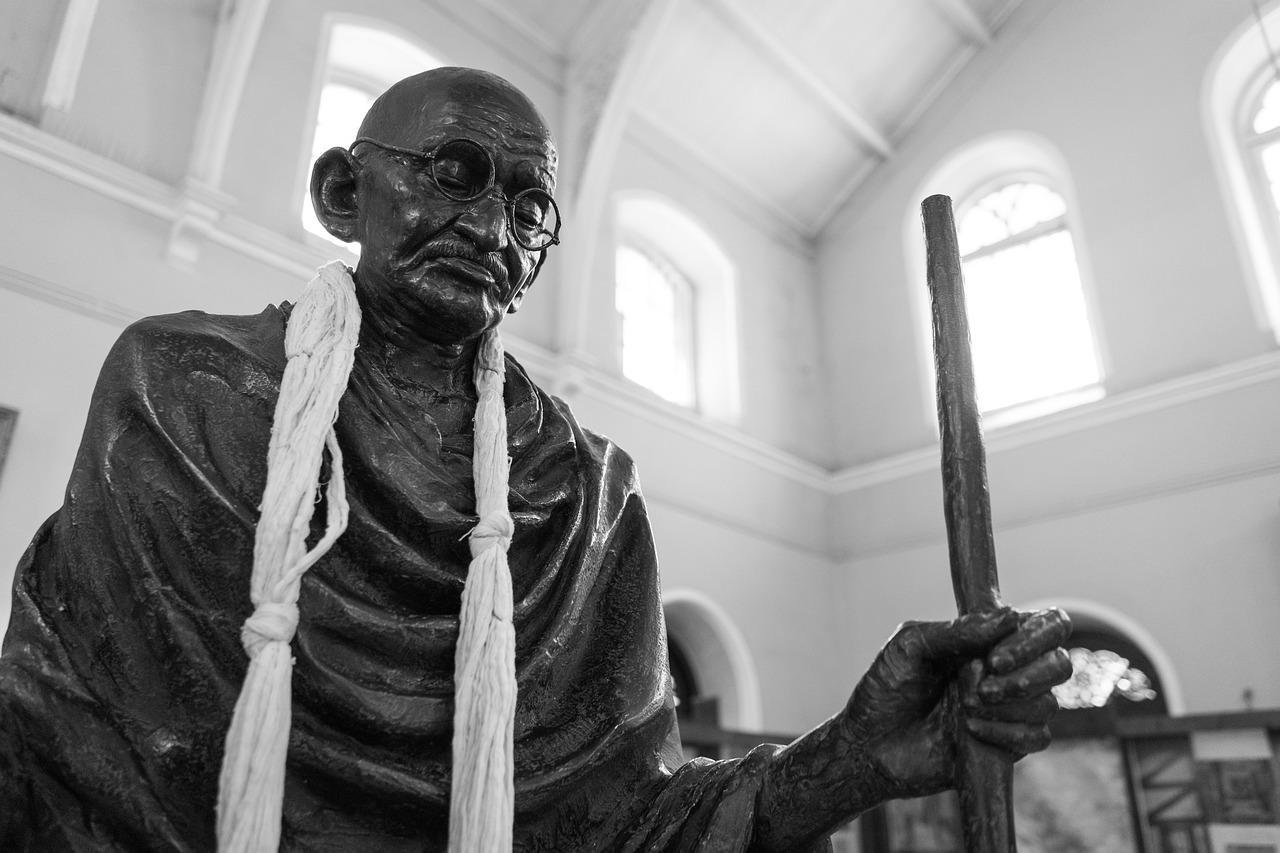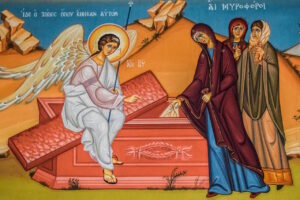Leviticus 19: 1-2, 17-18 (RM) or 11-2, 9-18 (RCL); Psalm 103; I Corinthians 3: 16-23 (RM) or 10-11, 16-23 (RCL); Matthew 5: 38-48. For those marking Transfiguration Sunday: Exodus 24: 12-18; Psalm 2; 2 Peter 1:16-21; Matthew 17: 1-9.
Imagine you’re watching an old B movie, or an early black-and-white television drama. You’re looking at two characters engaged in an increasingly violent interpersonal confrontation. Suddenly one of them rears back with their shoulder, swings their arm and lands a hard slap on the cheek of the other. The other actor’s head twists off to the side (because the first actor knew how to hold back and let the second actor’s response create the drama.) A nanosecond later, you hear a loud whack! (because the soundtrack isn’t aligned perfectly with the visual.)
Now – if the first actor swung with the right arm, where did the blow land on the other actor? On their left cheek, right? If the hit had landed on the right cheek, it would have to have been back-handed. A back handed slap. We have that expression in English. A back-handed slap is a real insult.
Jesus knew what he was doing with this illustration of how to resist violence. “Turning the other cheek” would put one’s adversary in an awkward position. Jesus was being wonderfully, uh, cheeky.
And what was Jesus doing with the next two examples? Almost as good. If you were a creditor demanding collateral from a debtor, and the debtor was so poor that all he or she had to offer was their overcoat, wouldn’t it make you look pretty pathetic? And the thing about going a second mile: it seems that under Roman occupation law, a soldier could compel a local civilian to carry a load for them for only a defined distance – say, one mile. The soldier was forbidden to demand more because he would then be violating military regulations. The civilian was actually taunting the Roman soldier. How clever! How…cheeky.
We’re not talking willing submission to victimization here. It’s more like a creative detoxification of aggression and a thwarting of intended humiliation. In our time we associate non-violence with Mahatma Gandhi and Dr. Martin Luther King Jr. We can suppress a smile at the often clever means used to subvert aggression while still admiring their iconic courage, hoping that in similar circumstances we could, somehow, summon the same.
The First Reading and the Gospel today are moving us toward a deeper inner transformation, not merely giving us strategies for surviving bullies with grace and a satisfying hint of a gloat. The book of Leviticus in chapters 17-26 lays out what became known as the Holiness Code, summarized in the Holy One’s words in the mouth of Moses,
“Be holy, for I, the One God, your God, am holy.”
The Gospel of Matthew expresses it differently:
“Be perfect, therefore, as your Abwoon in Heaven is perfect.”
These are two nuances for the same concept. Matthew actually combined two Hebrew Bible texts and gave them his own editorial colouration. In Deuteronomy 18 the word translates as “blameless” -“be blameless”- and in Leviticus “holy.” Luke 6:36, on the other hand, uses “merciful.” “Perfect” is used very rarely in the New Testament, but in secular Greek thought, it corresponded to conforming oneself to the divine ideal. Altogether, we’re urged to become more God-like.
Notice that this God-like state is not achieved by ascetic self-deprivation, or intense study, or by isolating oneself from “the world” with a sniff of disdain. Actualizing and bringing forth our God-like better nature is to be worked out in our relationships. Theses might be family and community relationships, as visualized in the passage from Leviticus, or in social relationships that could turn adversarial or even dangerous, as in the precarious world of Matthew’s Christian community.
Perfection, Holiness, does not reside in “some heaven, light years away” to quote the hymn Gather Us In, but “here in this place,” where “new light is streaming.”
© Susan K. Roll
Susan Roll retired from the Faculty of Theology at Saint Paul University, Ottawa, in 2018, where she served as Director of the Sophia Research Centre. Her research and publications are centred in the fields of liturgy, sacraments, and feminist theology. She holds a Ph.D. from the Catholic University of Leuven (Louvain), Belgium, and has been involved with international academic societies in liturgy and theology, as well as university chaplaincy, Indigenous ministry and church reform projects.




